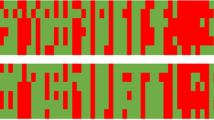Abstract
Background
Ursodeoxycholic acid (UDCA) remains the first-line therapy for primary biliary cholangitis (PBC); however, inadequate treatment response (ITR) is common. The UK-PBC Consortium developed the modified UDCA Response Score (m-URS) to predict ITR (using alkaline phosphatase [ALP] > 1.67 times the upper limit of normal [*ULN]) at 12 months post-UDCA initiation). Using data from the US-based Fibrotic Liver Disease Consortium, we assessed the m-URS in our multi-racial cohort. We then used a dynamic modeling approach to improve prediction accuracy.
Methods
Using data collected at the time of UDCA initiation, we assessed the m-URS using the original formula; then, by calibrating coefficients to our data, we also assessed whether it remained accurate when using Paris II criteria for ITR. Next, we developed and validated a dynamic risk prediction model that included post-UDCA initiation laboratory data.
Results
Among 1578 patients (13% men; 8% African American, 9% Asian American/American Indian/Pacific Islander; 25% Hispanic), the rate of ITR was 27% using ALP > 1.67*ULN and 45% using Paris II criteria. M-URS accuracy was “very good” (AUROC = 0.87, sensitivity = 0.62, and specificity = 0.82) for ALP > 1.67*ULN and “moderate” (AUROC = 0.74, sensitivity = 0.57, and specificity = 0.70) for Paris II. Our dynamic model significantly improved accuracy for both definitions of ITR (ALP > 1.67*ULN: AUROC = 0.91; Paris II: AUROC = 0.81); specificity approached 100%. Roughly 9% of patients in our cohort were at the highest risk of ITR.
Conclusions
Early identification of patients who will not respond to UDCA treatment using a dynamic prediction model based on longitudinal, repeated risk factor measurements may facilitate earlier introduction of adjuvant treatment.



Similar content being viewed by others
References
Carey EJ, Ali AH, Lindor KD. Primary biliary cirrhosis. Lancet. 2015;386:1565–1575. https://doi.org/10.1016/S0140-6736(15)00154-3.
Corpechot C, Chazouilleres O, Poupon R. Early primary biliary cirrhosis: biochemical response to treatment and prediction of long-term outcome. J Hepatol. 2011;55:1361–1367. https://doi.org/10.1016/j.jhep.2011.02.031.
Carbone M, Nardi A, Flack S et al. Pretreatment prediction of response to ursodeoxycholic acid in primary biliary cholangitis: development and validation of the UDCA Response Score. Lancet Gastroenterol Hepatol. 2018;3:626–634. https://doi.org/10.1016/S2468-1253(18)30163-8.
Cheung AC, Lammers WJ, Murillo Perez CF, et al. Effects of Age and Sex of Response to Ursodeoxycholic Acid and Transplant-free Survival in Patients With Primary Biliary Cholangitis. Clin Gastroenterol Hepatol. 2019; Doi:https://doi.org/10.1016/j.cgh.2018.12.028
Lu M, Zhou Y, Haller IV, et al. Increasing Prevalence of Primary Biliary Cholangitis and Reduced Mortality With Treatment. Clinical gastroenterology and hepatology : the official clinical practice journal of the American Gastroenterological Association. 2018;16:1342–1350 e1. Doi:https://doi.org/10.1016/j.cgh.2017.12.033
Lu M, Li J, Haller IV, et al. Factors Associated With Prevalence and Treatment of Primary Biliary Cholangitis in United States Health Systems. Clinical gastroenterology and hepatology : the official clinical practice journal of the American Gastroenterological Association. 2018;16:1333–1341 e6. https://doi.org/10.1016/j.cgh.2017.10.018
Gordon SC, Wu KH, Lindor K et al. Ursodeoxycholic Acid Treatment Preferentially Improves Overall Survival Among African Americans With Primary Biliary Cholangitis. Am J Gastroenterol. 2020;115:262–270. https://doi.org/10.14309/ajg.0000000000000512.
Tanaka A, Takikawa H. Geoepidemiology of primary sclerosing cholangitis: a critical review. J Autoimmun. 2013;46:35–40. https://doi.org/10.1016/j.jaut.2013.07.005.
Nyblom H, Bjornsson E, Simren M, Aldenborg F, Almer S, Olsson R. The AST/ALT ratio as an indicator of cirrhosis in patients with PBC. Liver international : official journal of the International Association for the Study of the Liver. 2006;26:840–845. https://doi.org/10.1111/j.1478-3231.2006.01304.x.
Ronca V, Gerussi A, Cristoferi L, Carbone M, Invernizzi P. Precision medicine in primary biliary cholangitis. Journal of Digestive Diseases. 2019;20:338–345. https://doi.org/10.1111/1751-2980.12787.
Rubin DB. Multiple imputation for nonresponse in surveys. Wiley series in probability and mathematical statistics Applied probability and statistics,. Wiley. 1987;xxix
Funding
Intercept Pharmaceuticals Inc.
Author information
Authors and Affiliations
Consortia
Contributions
ML and SG contributed to study concept and design. ML, LR, IH, JV, RR, CR, MR, JB, MS, YD, AS, JV, CB, and KL contributed to acquisition of data. ML, HW, and JL contributed to analysis and interpretation of data. ML, LR, ST, and SG contributed to drafting of the manuscript. ML, LR, IH, JV, RR, CR, MR, JB, MS, YD, AS, JV, CB, KL, ST, CM, and SG contributed to critical revision of the manuscript for important intellectual content. ML and SG obtained funding. LR and CM contributed to administrative, technical, or material support. ML contributed to study supervision.
Corresponding author
Ethics declarations
Conflicts of interest
Stuart C. Gordon receives grant/research support from AbbVie Pharmaceuticals, Conatus, CymaBay, Gilead Pharmaceuticals, Intercept Pharmaceuticals, and Merck. Mei Lu, Jia Li, Lora Rupp, Sheri Trudeau, Yueren Zhou, Christina Melkonian, Yihe G. Daida, Mark A. Schmidt, and Joseph A. Boscarino receive grant/research support from Gilead Pharmaceuticals. Carla V. Rodriguez owns stock in Gilead (< $5,000). Heather Anderson receives grant/research support from Intercept Pharmaceuticals. Jeffrey J. VanWormer receives grant/research support from Retrophin. Christopher L. Bowlus receives grant/research support from AbbVie Pharmaceuticals, Bristol-Myers-Squibb, Gilead Biosciences, Intercept Pharmaceuticals, Merck, Shire Pharmaceuticals, Takeda Pharmaceuticals, and has served as an advisor for Bristol-Myers-Squibb, Gilead Biosciences, Intercept Pharmaceuticals, and Takeda. Keith Lindor is a consultant/advisor for Biopharma and has served as an ad hoc advisor for HighTide, Takeda, Shire, and Intercept Pharmaceuticals. He sits on a Data Safety Monitoring Board for Takeda. Robert J. Romanelli receives received grant/research support from Pfizer Inc. and Janssen Scientific Affairs. Irina V. Haller, Marsha A. Raebel, and Jennifer Vincent have no conflicts of interest to declare.
Additional information
Publisher's Note
Springer Nature remains neutral with regard to jurisdictional claims in published maps and institutional affiliations.
Dr. Li accepts full responsibility for the conduct of the study.
Supplementary Information
Below is the link to the electronic supplementary material.
Rights and permissions
About this article
Cite this article
Li, J., Lu, M., Zhou, Y. et al. Dynamic Risk Prediction of Response to Ursodeoxycholic Acid Among Patients with Primary Biliary Cholangitis in the USA. Dig Dis Sci 67, 4170–4180 (2022). https://doi.org/10.1007/s10620-021-07219-4
Received:
Accepted:
Published:
Issue Date:
DOI: https://doi.org/10.1007/s10620-021-07219-4




